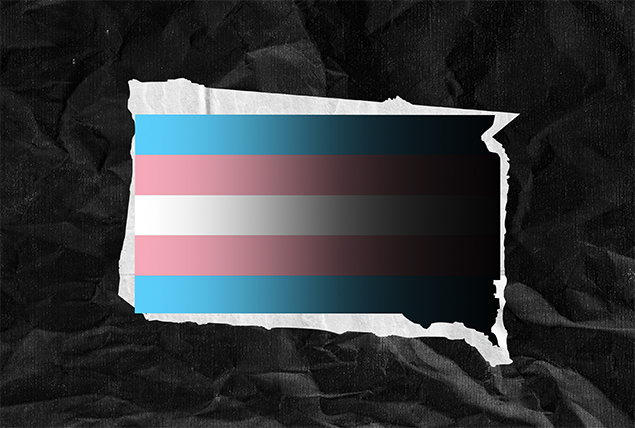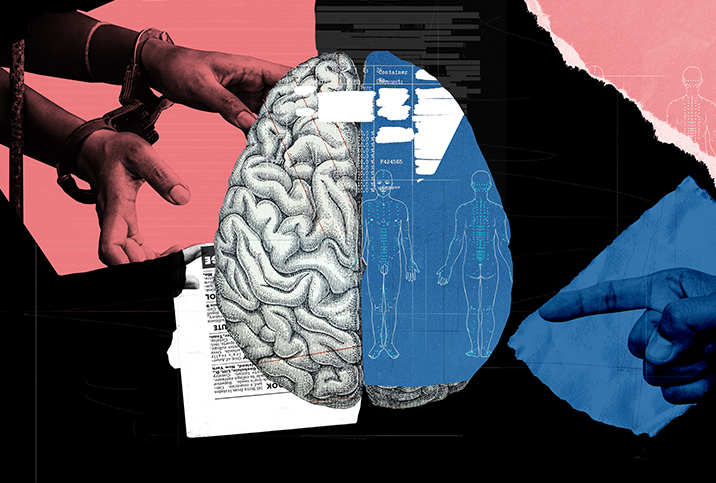South Dakota Is 4th State to Ban Gender-Affirming Care to Trans Minors

South Dakota passed legislation forbidding the administration of sex hormones, surgery for gender transformation and the use of puberty-blocking drugs in minors younger than age 18. The "Help Not Harm" bill, House Bill 1080, was signed into law by Republican Gov. Kristi Noem on Feb. 13 and will take effect July 1.
Healthcare providers have until the end of the year to discontinue treating underage patients currently receiving gender-affirming care, such as hormone therapy, surgery and puberty blockers. Physicians who don't comply run the risk of losing their medical licenses or being sued.
"South Dakota's kids are our future," Noem said in a statement. "With this legislation, we are protecting kids from harmful, permanent medical procedures. I will always stand up for the next generation of South Dakotans."
This bill comes on the heels of South Dakota's ban in 2022 on transgender girls and women participating on school sports teams that correspond with their gender identity.
The American Civil Liberties Union and the ACLU of South Dakota issued a joint statement in response to the bill's signing.
"Today is a heartbreaking and tragic day for thousands of South Dakotans and their families. This ban won't stop South Dakotans from being trans, but it will deny them critical support that helps struggling transgender youth grow up to become thriving transgender adults. But make no mistake: This fight is not over," the statement read.
South Dakota is now the fourth state in the United States to implement this type of medical ban on transgender and nonbinary youth.
What is gender-affirming care?
Gender-affirming care, as defined by the federal Office of the Assistant Secretary for Health is "a supportive form of healthcare. It consists of an array of services that may include medical, surgical, mental health and non-medical services for transgender and nonbinary people. For transgender and nonbinary children and adolescents, early gender-affirming care is crucial to overall health and well-being as it allows the child or adolescent to focus on social transitions and can increase their confidence while navigating the healthcare system."
Gender-affirming care is patient-centered and treats individuals holistically, aligning their outward physical traits with their gender identity.
The case for gender-affirming care
While some people view gender-affirming care as harmful to minors, other organizations see it as crucial to a minor's mental health development. People who oppose the legislation say it will be harmful to transgender youth and is an overreach into medical decisions.
The American Medical Association (AMA) has staunchly opposed governmental intrusion into the practice of medicine, which is essential to the health of transgender and nonbinary youth.
"Gender-affirming care is medically necessary, evidence-based care that improves the physical and mental health of transgender and gender-diverse people," said Michael Suk, M.D., J.D., an AMA board of trustees member, in a 2021 statement.
The Trevor Project, an organization dedicated to ending suicide among LGBTQIA+ youth, said in a recent statement, "research has also consistently found that transgender medical care is associated with positive mental health outcomes, including showing promise for reducing suicide risk."
According to a 2020 study by the Trevor Project, transgender and nonbinary youth suffer higher risks of depression, suicidal ideation, suicide attempts and suicide compared to peers their age who are cisgender—their gender identity matches their assigned gender at birth—and identify as heterosexual.
Additionally, a 2021 peer-reviewed study, also performed by the Trevor Project and published in the Journal of Adolescent Health, suggested that gender-affirming hormone therapy was linked to lower rates of depression, suicidal thoughts and suicide attempts among transgender and nonbinary youth.
Gender-affirming care might entail more than just performing medical operations; it can also entail supporting patients in their pursuit of social and legal affirmation as well as medical affirmation.
It's important to note that surgical interventions are not typically performed on children, and many healthcare providers do not offer them to minors. An analysis of insurance claims found a total of 56 genital surgeries were conducted among patients ages 13 to 17 from 2019 to 2021 in the United States, according to Reuters. Minors who underwent this surgery had a prior gender dysphoria diagnosis.
Studies show that transgender people are more likely to experience difficulties with their mental health. Health professionals say some of these issues, such as anxiety and depression, can be mitigated with gender-affirming care.
As opposed to transgender people who must wait until they are adults to receive treatment, teens who can obtain gender-affirming therapy often experience better mental health outcomes.
Other states that have banned gender-affirming care
Following Utah's approval of a similar restriction in January, South Dakota is now the second state this legislative session to forbid gender-affirming care for transgender children.
Lawmakers in at least 24 states, including South Dakota, have so far this year sponsored legislation that would limit the care that minors receive during transitions. These limitations have been signed by the governors of Alabama, Arkansas, Arizona, South Dakota, Tennessee and Utah. Federal courts are presently blocking legislation of this kind in Alabama and Arkansas.


















